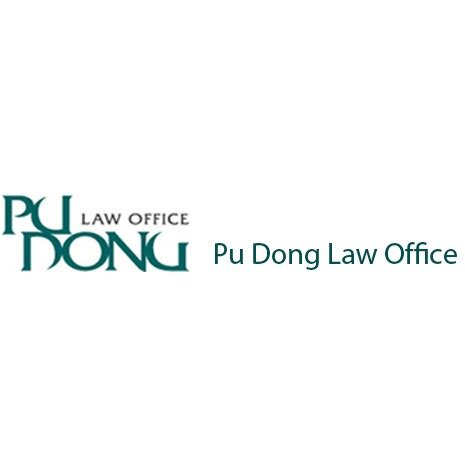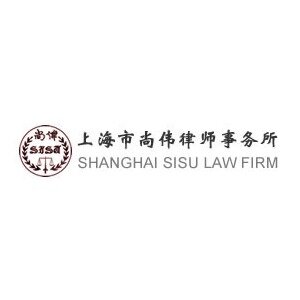Best Civil Rights Lawyers in Shanghai
Share your needs with us, get contacted by law firms.
Free. Takes 2 min.
List of the best lawyers in Shanghai, China
About Civil Rights Law in Shanghai, China
Civil rights law in Shanghai, China, encompasses various aspects of freedoms and equal treatment for individuals. It is rooted in the Chinese Constitution and several national laws that guarantee the protection of personal rights, freedom of speech, ethnicity, and gender equality. In Shanghai, a major international financial hub, civil rights issues may pertain to employment, housing, and interactions with the state. The city’s legal framework is aligned with national guidelines and has specific ordinances to address the diverse civil rights needs of its residents.
Why You May Need a Lawyer
There are numerous situations in which you may require legal assistance in the realm of civil rights. Some common scenarios include facing discrimination in the workplace, being denied housing based on race or ethnicity, experiencing unjust treatment by law enforcement, or having your freedom of speech infringed upon. A lawyer can help you navigate the complexities of these issues, offering guidance on your rights and legal remedies available under Shanghai’s regulations.
Local Laws Overview
Shanghai adheres to several national laws concerning civil rights, but also has localized regulations that cater to its unique demographic and socio-economic environment. Key aspects include anti-discrimination laws, which protect individuals in employment and housing sectors. Laws relating to equal opportunity ensure that citizens have the same chances to participate in social, economic, and cultural life. Understanding these laws is vital in recognizing when your civil rights have been violated and in seeking appropriate recourse.
Frequently Asked Questions
What are my civil rights in Shanghai, China?
Your civil rights include the right to non-discrimination, freedom of speech, freedom of religion, and the right to a fair legal process, among others. These rights are protected under the Chinese Constitution and applicable local laws in Shanghai.
How do I know if my civil rights have been violated?
A violation may occur if you experience discrimination or unfair treatment based on characteristics like race, gender, or ethnicity, or if your freedom of speech is unduly restricted. Consulting with a lawyer can clarify if a legal violation has occurred.
Can I bring a civil rights case to court in Shanghai?
Yes, individuals can bring civil rights cases to the local courts in Shanghai. Navigating these legal processes can be complex, and it is advisable to seek the help of an experienced attorney to represent your interests.
What should I do if I face discrimination at work?
It is important to document the incidents and report them to your employer or relevant local labor authorities. Consulting a lawyer can guide you on further actions, including mediation or legal proceedings.
Are there specific laws about freedom of speech in Shanghai?
Freedom of speech is protected under Chinese law, but it is subject to certain limitations to protect state security, honor, and privacy. The balance between freedom and regulation can be complex, and legal advice may help clarify your specific concern.
How can I address unlawful eviction or denial of housing?
You should gather evidence of discriminatory practices and contact a lawyer. There are legal protections against such actions, and an attorney can guide you in seeking resolution or filing a claim in court.
Does Shanghai have specific anti-discrimination laws for expatriates?
While national laws apply to everyone, expatriates can also rely on international human rights principles. Consulting with a lawyer familiar with these aspects is recommended for personalized advice.
Can civil rights legal cases be settled outside of court?
Yes, many civil rights disputes can be resolved through mediation or settlement negotiations, which can be facilitated by a lawyer to avoid lengthy court processes.
What resources are available for victims of civil rights violations?
Victims can approach legal aid services or advocacy groups that specialize in civil rights issues. Government bodies can also offer information and sometimes mediation support.
How can I find a qualified civil rights lawyer in Shanghai?
Referrals from legal aid organizations or bar associations can help you find a reputable lawyer. Online directories and law firm websites also provide information about attorneys specializing in civil rights law.
Additional Resources
Several organizations and governmental bodies can offer support and information related to civil rights in Shanghai. These include the Shanghai Municipal Bureau of Justice, legal aid centers, and non-governmental organizations focused on human rights. Libraries and online databases may also provide valuable legal information and resources.
Next Steps
If you believe your civil rights have been violated or need legal assistance, consider the following steps: Consult a qualified attorney specializing in civil rights law to assess your case. Document all relevant incidents and gather any evidence. Research your legal options, including filing a complaint or pursuing mediation. Explore available resources and support networks to strengthen your legal position. Preparing adequately can significantly enhance your chance of a favorable resolution.
Lawzana helps you find the best lawyers and law firms in Shanghai through a curated and pre-screened list of qualified legal professionals. Our platform offers rankings and detailed profiles of attorneys and law firms, allowing you to compare based on practice areas, including Civil Rights, experience, and client feedback.
Each profile includes a description of the firm's areas of practice, client reviews, team members and partners, year of establishment, spoken languages, office locations, contact information, social media presence, and any published articles or resources. Most firms on our platform speak English and are experienced in both local and international legal matters.
Get a quote from top-rated law firms in Shanghai, China — quickly, securely, and without unnecessary hassle.
Disclaimer:
The information provided on this page is for general informational purposes only and does not constitute legal advice. While we strive to ensure the accuracy and relevance of the content, legal information may change over time, and interpretations of the law can vary. You should always consult with a qualified legal professional for advice specific to your situation.
We disclaim all liability for actions taken or not taken based on the content of this page. If you believe any information is incorrect or outdated, please contact us, and we will review and update it where appropriate.









